Last year, in 2007, I made a vested effort in finding a job in Tokyo, Japan. My work in California (I am a Project Manger/Construction Company Owner) was fluxuating due to the waning economy, and I decided to actually try some of the links we provide here at Hashi.org, enlist the services of friends and acquaintences, and first-hand, see what it's like. The following article, from Daijob. com, sums up perfectly the challenges facing the job-seeker.
(reprinted from Daijob.com)
Ideally, you want to have a job lined up before coming to Japan. There are some practices that can make things tricky for anyone that tries to find a job after their arrival. Part of the problem is that most employers will require you to have a valid visa and residence in the country before application. Unfortunately, without employment or another type of visa sponsor, it is impossible to stay in the country. It is also next to impossible to find a place to live without a company or other type of guarantor.This Catch 22 can result in many foreigners living in Japan at the expense of their careers. Japan is an excellent place to live, but because of the labor laws and practices you will want to make sure that it is the right career move. The English teaching business and other industries like sales are currently the best options for foreigners who are non-expatriates and are interested in Japan. People with Japanese ability have more opportunities in industries like IT and technologies, but most companies are looking for workers with Ikkyu (JLPT1) proficiency or higher. Whatever field of work you chose, make sure that the experience will count towards a future career to avoid this common pitfall of working in Japan.That means that people interested in staying in Japan longer than the period of time allotted by their tourist visa will need to consider finding work, assuming they are not a student or involved in another program that takes care of these issues. For motivated individuals, there is always a way to find work or a visa sponsor, but as a general rule, you will want to do all of your planning before you arrive. You should know where you will stay, where you will work and how long you will be there.You can start by registering your resume with
http://www.workinjapan.com/ and finding the best job available.
ExpatsIf you already work for a company with a branch in Japan and are considering transferring to their branch here then you can probably avoid many of these issues. As an expatriate you can rely on the community of your company to sort out most of your daily life issues too. This is probably the best option for people interested in working in Japan without sacrificing their career.
NetworkingContacts are very important in finding employment. So much so that it is even a requirement to get some jobs. You will want to know someone who works at the company before you apply and probably even get an introduction to any staff that could be involved in your interview process. You do not want to appear as an “outsider,” so never turn down the opportunity to make new contacts, even if it is only someone you meet briefly.In Japan, business etiquette is extremely scripted and important in making a positive impression compared with other countries. The Japanese business meeting is an example of this; the meeting is often little more than a ceremony to congratulate everyone on decisions they have agreed on before the meeting. It is not the place to negotiate or present new ideas. Japan is becoming more accepting and familiar with Western business practices, but it is always best to know these social customs so you can avoid losing business over uncomfortable situations.
http://www.japan-guide.com/e/e622.htmlEntrepreneursIt is slowly becoming a viable option to start your own business in Japan, but there is still a lot of red tape and cost involved. The regulations regarding entrepreneurship and starting a business can be found at the Japan External Trade Organization’s website,
http://www.jetro.go.jp/en/invest/setting_up/. For advice beyond the rules and regulations, Venture Japan (
http://www.venturejapan.com/index.htm) is a site that is dedicated to explaining some of the ins and outs of how to do business here.
PensionLike the medical treatment insurance system, Japan also has a pension system. Every citizen must enroll in the pension system. The National Pension Plan covers all people between the ages of 20 and 60 living in Japan (including students) and provides equal basic pension benefits. Foreigners living in Japan must also subscribe to this plan.
http://web-jpn.org/links/society/welfare/social1.htmlThe Employees' Pension Plan applies to workers under the age of 70 who are working full-time. The premiums begin around ¥13,500 for the National plan, but are adjusted each year. Under the Employees’ Pension Plan the subscriber and the employer each pay half of the amount calculated by multiplying the subscriber's standard monthly income by the premium rate, or that of your employer.
TaxesYou will have to pay some taxes in Japan, likely Income Tax, Resident Tax and Consumption Tax. Only money that is paid to you from an abroad source to an abroad account is non-taxable. But, once you transfer that money to Japan, it is subject to tax. For information on taxes in Japan, visit
http://www.jref.com/practical/tax.shtml.
Trouble at WorkIf for some reason you encounter discrimination or other issues in the workplace, you can contact the Department of Labor Standards Inspection,
http://www.tfemploy.go.jp/en/coun/cont_4.html. No one ever expects to have these kinds of issues, but things can get pretty tricky as a foreigner in Japan. It is not uncommon for English schools to try and force foreign workers to work longer then their visa permits, violating their visa status, so that employers can exercise control over the worker by threatening to report them to the Immigration Bureau. If such a situation ever arises, make it clear that you understand the law and if necessary contact the proper authorities. Contact the authorities before you yourself have broken any laws.
Day CareDay Care is a booming business in Japan. This is especially true in the Tokyo Metropolitan Area where many women are working as well as their husbands. However, trying to find an appropriate Day Care can be daunting.Obviously, your company should be your first stop for questions and information about how to proceed. You are probably going to want someone who can translate for you when you contact the schools.If you need an option besides going through a company, you can consult the Yellow Pages. Try searching under Nursery School, Baby Hotel, Hoikuen and Takujishou as well. Otherwise, you will want to contact your local Ward Office (Kuyakushou) or City Hall (Shiyakushou). Most areas have publicly run Day Cares that aren’t listed in the Yellow pages.
Yellow Page Links
http://www.yellowpage-jp.com/http://english.itp.ne.jp/http://www.ypj.com/en/
 11/01/08 - Hashi.org is proud to announce the winner of the 2nd annual Travel Scholarship to a Korean citizen! The number of applications received far exceeded previous application periods, and we received many, fine applications, with essays describing a variety of backgrounds – International Studies, Translation, Engineering, Mathematics, etc. – and cultural exchange interests – Student exchange, Language studies, Grad studies and research, etc. But our winner is a Korean Grad Student who is presently studying Japanese art and architecture at USC in California. As part of her dissertation, she will be traveling to Japan later this year to do research. After graduation, she plans on teaching in both South Korea and the US, in an effort to bring about greater cultural understanding between the three countries.
11/01/08 - Hashi.org is proud to announce the winner of the 2nd annual Travel Scholarship to a Korean citizen! The number of applications received far exceeded previous application periods, and we received many, fine applications, with essays describing a variety of backgrounds – International Studies, Translation, Engineering, Mathematics, etc. – and cultural exchange interests – Student exchange, Language studies, Grad studies and research, etc. But our winner is a Korean Grad Student who is presently studying Japanese art and architecture at USC in California. As part of her dissertation, she will be traveling to Japan later this year to do research. After graduation, she plans on teaching in both South Korea and the US, in an effort to bring about greater cultural understanding between the three countries.



 After the wonderful hospitality of my friends in Tokyo, I visited another couple in Osaka with whom I had become close in our grad school years. It had been a long time, but they remembered our experiences at the school. The wife had been the one who taught me Japanese before I started taking classes. She was very proficient in English, as was her husband. He had been dissatisfied with company life and decided to accept the challenge of going to school in America. He attended two universities. When he returned to Japan, he went into a different career, but in the same major area. While he was not totally satisfied with his new job, he felt that it was better than the company job he had before. His wife, on the other hand, did not change her job right away. She stayed in the same field, but was able to move up in her career. Since they had no children, she felt free to pursue her career. While they did not change much in their private lives, they did change their perspectives on the rest of the world. They took vacations to various places around the world. They could look at their own country with a critical eye, yet an affectionate one. They saw the strengths and weaknesses of all the places they had been.
After the wonderful hospitality of my friends in Tokyo, I visited another couple in Osaka with whom I had become close in our grad school years. It had been a long time, but they remembered our experiences at the school. The wife had been the one who taught me Japanese before I started taking classes. She was very proficient in English, as was her husband. He had been dissatisfied with company life and decided to accept the challenge of going to school in America. He attended two universities. When he returned to Japan, he went into a different career, but in the same major area. While he was not totally satisfied with his new job, he felt that it was better than the company job he had before. His wife, on the other hand, did not change her job right away. She stayed in the same field, but was able to move up in her career. Since they had no children, she felt free to pursue her career. While they did not change much in their private lives, they did change their perspectives on the rest of the world. They took vacations to various places around the world. They could look at their own country with a critical eye, yet an affectionate one. They saw the strengths and weaknesses of all the places they had been.
 If only we had a way to communicate the different customs before people travel or immigrate (emigrate) to another country. We need to have better ways of communicating with others of a different culture. Even though I had studied Japanese culture, I still made mistakes. I did know about how polite and law-abiding and careful of others the Japanese were. I knew that one kept one’s promise, one was polite to everyone, and one always would pick up something someone dropped and return it to him or her. I saw this many times and was the beneficiary of this last one. Most children in America are not taught anything about other cultures in a way that would really make a difference when they meet someone who is different. It is important to reach people while they are young, so they can learn and understand others. If I had the chance, this is what I would try to introduce to school children. As the world becomes more interconnected, people will need to know the people with whom they do business, call on the telephone, or email. The reason we have trouble in the world is because of lack of communication. If each individual had a knowledge, a real understanding, of others, there would be less violence between countries.
If only we had a way to communicate the different customs before people travel or immigrate (emigrate) to another country. We need to have better ways of communicating with others of a different culture. Even though I had studied Japanese culture, I still made mistakes. I did know about how polite and law-abiding and careful of others the Japanese were. I knew that one kept one’s promise, one was polite to everyone, and one always would pick up something someone dropped and return it to him or her. I saw this many times and was the beneficiary of this last one. Most children in America are not taught anything about other cultures in a way that would really make a difference when they meet someone who is different. It is important to reach people while they are young, so they can learn and understand others. If I had the chance, this is what I would try to introduce to school children. As the world becomes more interconnected, people will need to know the people with whom they do business, call on the telephone, or email. The reason we have trouble in the world is because of lack of communication. If each individual had a knowledge, a real understanding, of others, there would be less violence between countries.
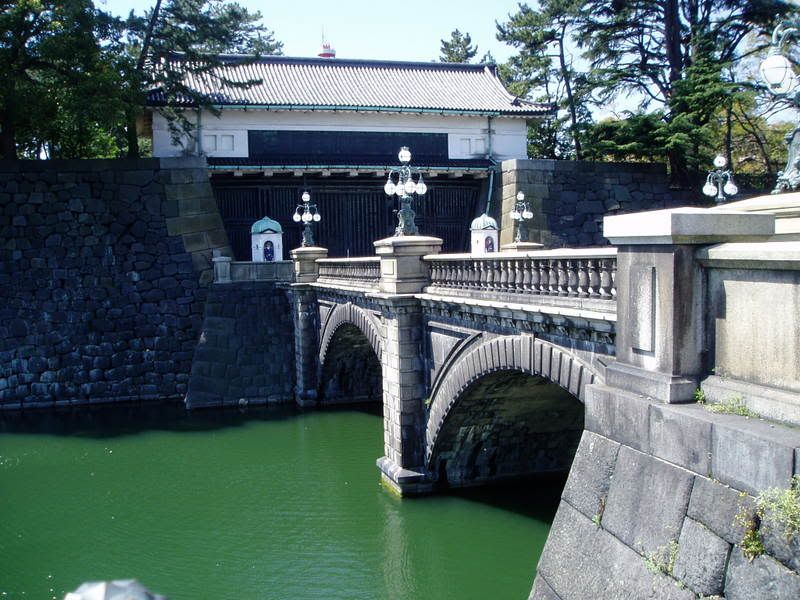

 From Tokyo, I'll go up to Kyoto for a couple of days,
From Tokyo, I'll go up to Kyoto for a couple of days, 
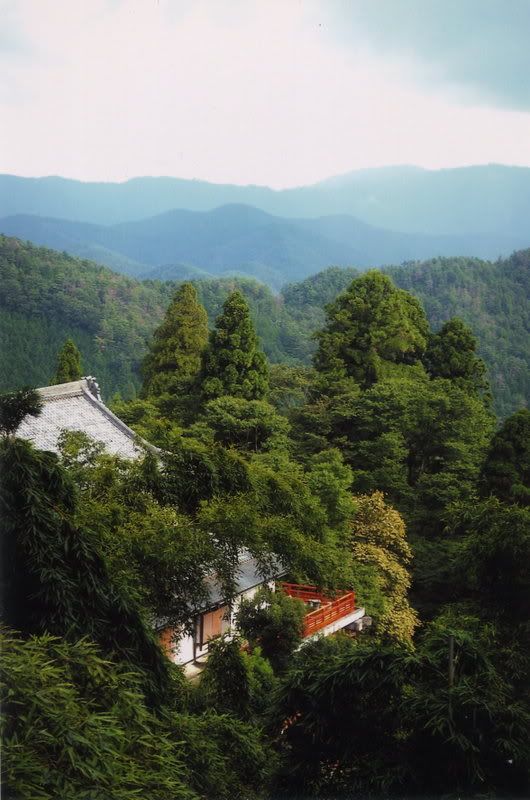




 was the perfect meeting spot on Fairfax, and the food was awesome.
was the perfect meeting spot on Fairfax, and the food was awesome. 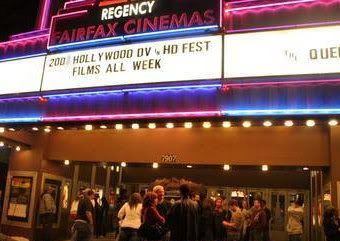 They show films in 2-3 hour "blocks," and then have a Q& A with the filmmakers. This evening started out with a feature-length, post-apolcalyptic, sci-fi film called "Like Moles, Like Rats." This was so good, I wouldn’t be surpised if it’s picked up and gets a distribution deal. After that, a brilliant and fun spoof on the crime-fighting genre called "Asian Task Force" (ATF). Then one more short, and finally our "Bridge" video.
They show films in 2-3 hour "blocks," and then have a Q& A with the filmmakers. This evening started out with a feature-length, post-apolcalyptic, sci-fi film called "Like Moles, Like Rats." This was so good, I wouldn’t be surpised if it’s picked up and gets a distribution deal. After that, a brilliant and fun spoof on the crime-fighting genre called "Asian Task Force" (ATF). Then one more short, and finally our "Bridge" video. 
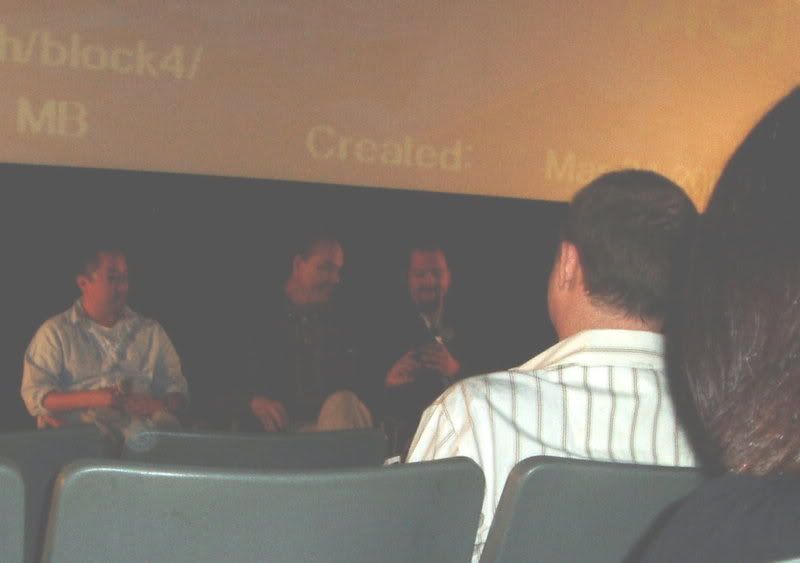 I got to tell the story of Panmunjeom, where, at the end of the Korean war, officials gave people a few days to make the decision to stay on the side they were, or cross this bridge to the other side, but if they did, they could never return. And someone asked about the song itself, and I shared about the difficulty of writing Korean lyrics for part of the song (there was a Korean Dry Cleaners across the street where I lived, and would write a line, and run across the street and ask my friend there about it, and she’d say like "uuuh, we don’t really say it like that. It would be better to say it like this..." But I’m thinking "...that doesn’t rhyme!")
I got to tell the story of Panmunjeom, where, at the end of the Korean war, officials gave people a few days to make the decision to stay on the side they were, or cross this bridge to the other side, but if they did, they could never return. And someone asked about the song itself, and I shared about the difficulty of writing Korean lyrics for part of the song (there was a Korean Dry Cleaners across the street where I lived, and would write a line, and run across the street and ask my friend there about it, and she’d say like "uuuh, we don’t really say it like that. It would be better to say it like this..." But I’m thinking "...that doesn’t rhyme!") 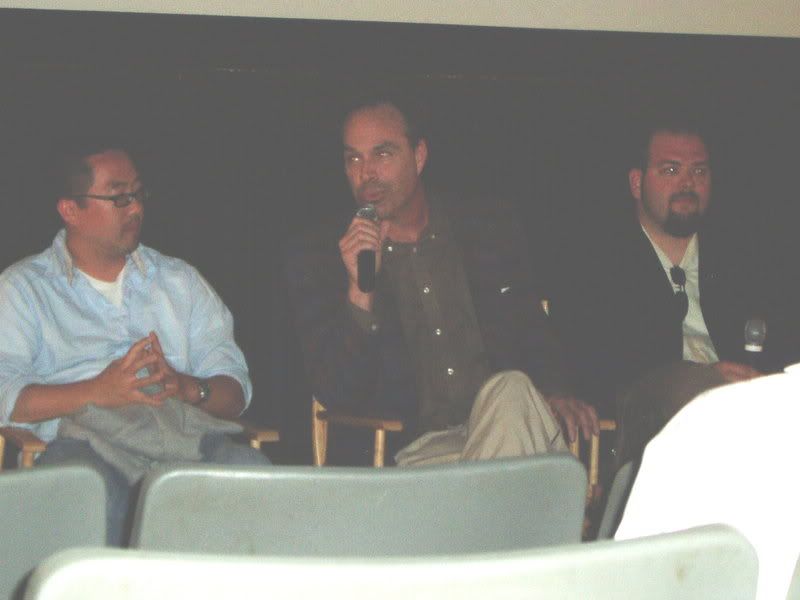 It was an honor to have been chosen to be in this festival, and an honor to share the stage with these talented filmmakers.
It was an honor to have been chosen to be in this festival, and an honor to share the stage with these talented filmmakers. 

